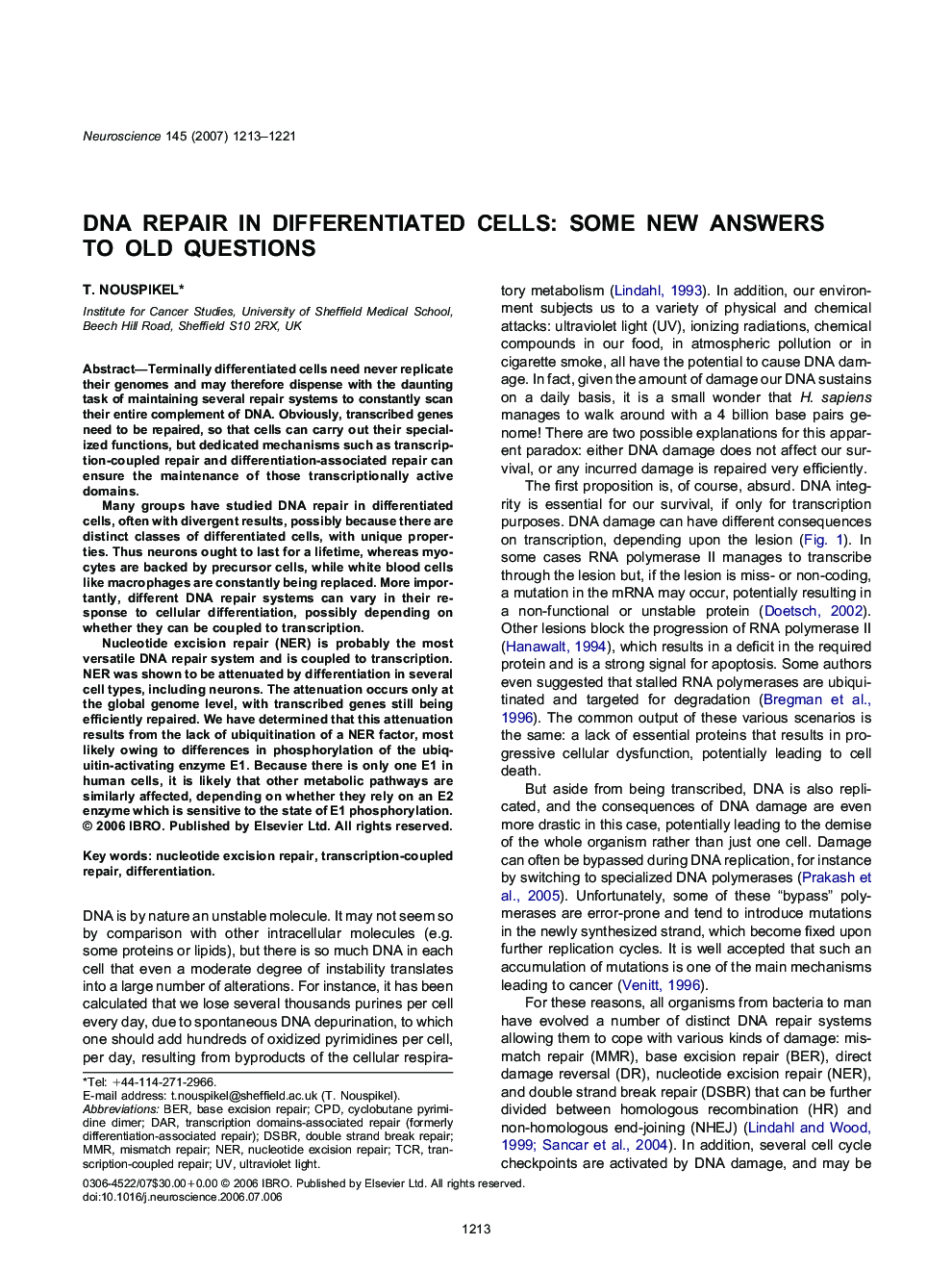| Article ID | Journal | Published Year | Pages | File Type |
|---|---|---|---|---|
| 6278450 | Neuroscience | 2007 | 9 Pages |
Abstract
Nucleotide excision repair (NER) is probably the most versatile DNA repair system and is coupled to transcription. NER was shown to be attenuated by differentiation in several cell types, including neurons. The attenuation occurs only at the global genome level, with transcribed genes still being efficiently repaired. We have determined that this attenuation results from the lack of ubiquitination of a NER factor, most likely owing to differences in phosphorylation of the ubiquitin-activating enzyme E1. Because there is only one E1 in human cells, it is likely that other metabolic pathways are similarly affected, depending on whether they rely on an E2 enzyme which is sensitive to the state of E1 phosphorylation.
Keywords
Related Topics
Life Sciences
Neuroscience
Neuroscience (General)
Authors
T. Nouspikel,
